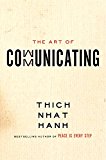4 lessons about listening
In few minutes, the main rules of listening are shown to Angelo: he understands quickly that the required quality of listening it is very different from what he thinks ‘’listening’’ is
- FIRST LESSON
Listening is about being present for the other
One of the first thing that Angelo is told is “Remember that the caller needs to feel that what they’re saying is not falling on deaf ears, ok? We’re not here to give advice, we’re nothere to judge”.
Angelo is surprised to hear this, and he wonders “We’re not here to judge. Then what’s the point?”
- SECOND LESSON
The value of reformulation
Like Angelo, many of us think that listening means to intervene in some way in the process of the other, to give advice, to comfort, to give solutions, to educate, to interpret, to analyse, to judge. The true listening has nothing to do with this. Listening is a very efficient instrument when it sends back exactly where the other is in that moment, in a language that is in line with him.
“Just listen and try to feel their pain. If someone calls and says: things are really bad right now, you answer full of compassion ‘Things are really bad now, eh?’”
- THIRD LESSON
Listening is an active action: it is trying to understand
Most people don’t listen with the intention of understanding what the other person is going through, but with the intention of answering. While the interlocutor is speaking, our thinking is focused on what we could say when the speaker finishes talking, or we even do it, interrupting him. True listening is giving our understanding, putting temporarily aside our ideas on what’s right and what’s wrong.
“Well, knowing how to listen is not for everyone.” and Angelo recognizes this truth adding: “I know, and I’ve got years of experience. Talking and no listening is an Italian tradition”.
- FOURTH LESSON
We can only give to others what we have already conquered for ourselves
Angelo believes that listening to other people with ease, leaving space for them to be able to feel listened and understood, does not help. At one point, he gets annoyed because he believes that really helping others means encouraging them to take action or to reflect, by exhorting them with some verbal strength, appealing to emotions like guilt or embarrassment. It is at this point that the last lesson for Angelo arrives, the one that will finally keep him silent and – finally – aware: Angelo, if you can’t have compassion for yourself, how are you gonna have it for others?
Real listening, whatever we listen to, music, a colleague, a friend, our partner, is a process that requires effort: effort to try not to put over the other person our ideas, opinions, prejudices, our experience, the “in my opinion”. Listening is essential to truly connect with other human beings, it is the prerequisite to constructively manage any kind of interaction, personal and professional.
Listening means making the other person feel so comfortable and understood in their own experience that they can say: “Finally someone who can understand what it’s like to be me.” This understanding experience generates a connection and an overcoming of the conflict.
Giovanna Castoldi, counselor and trainer


